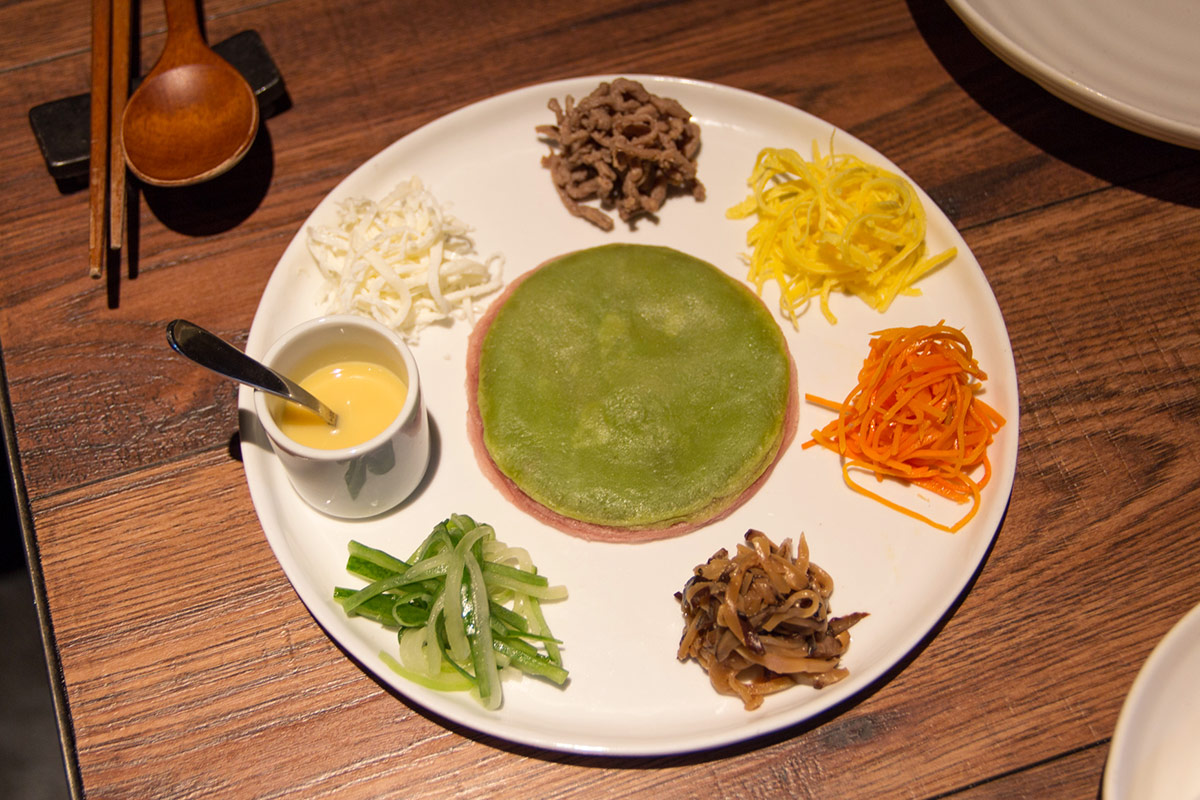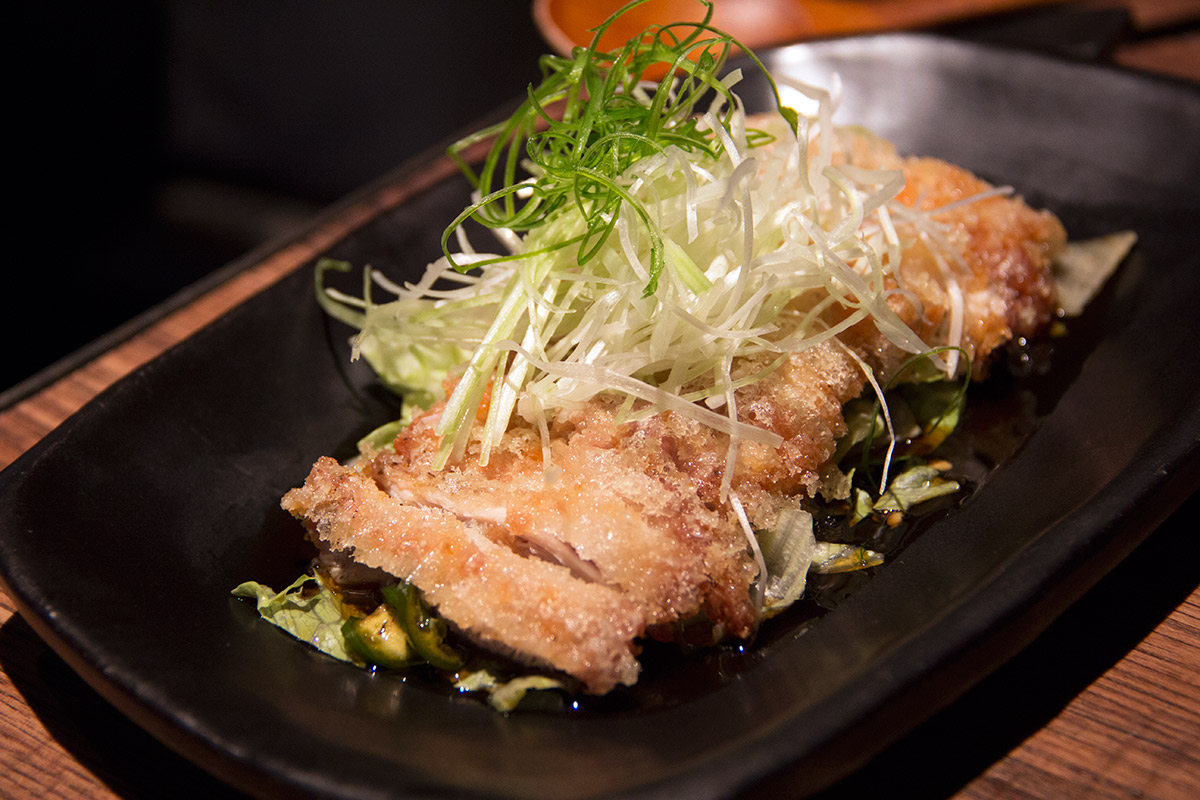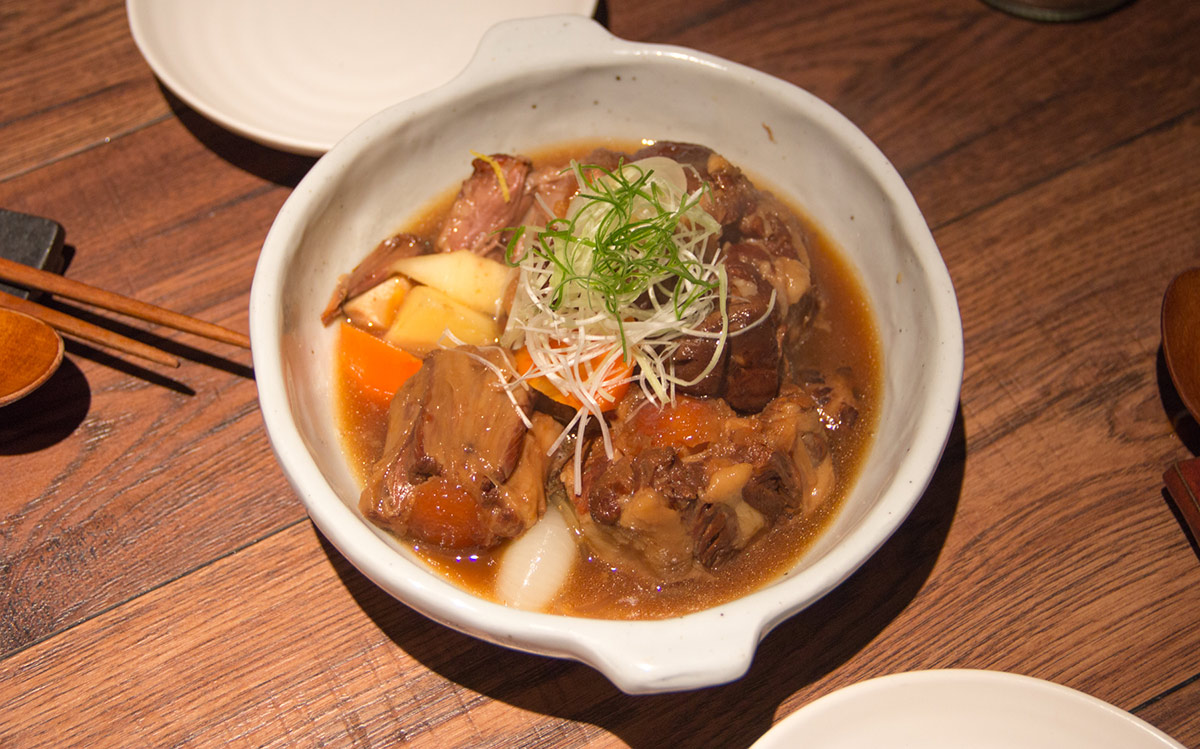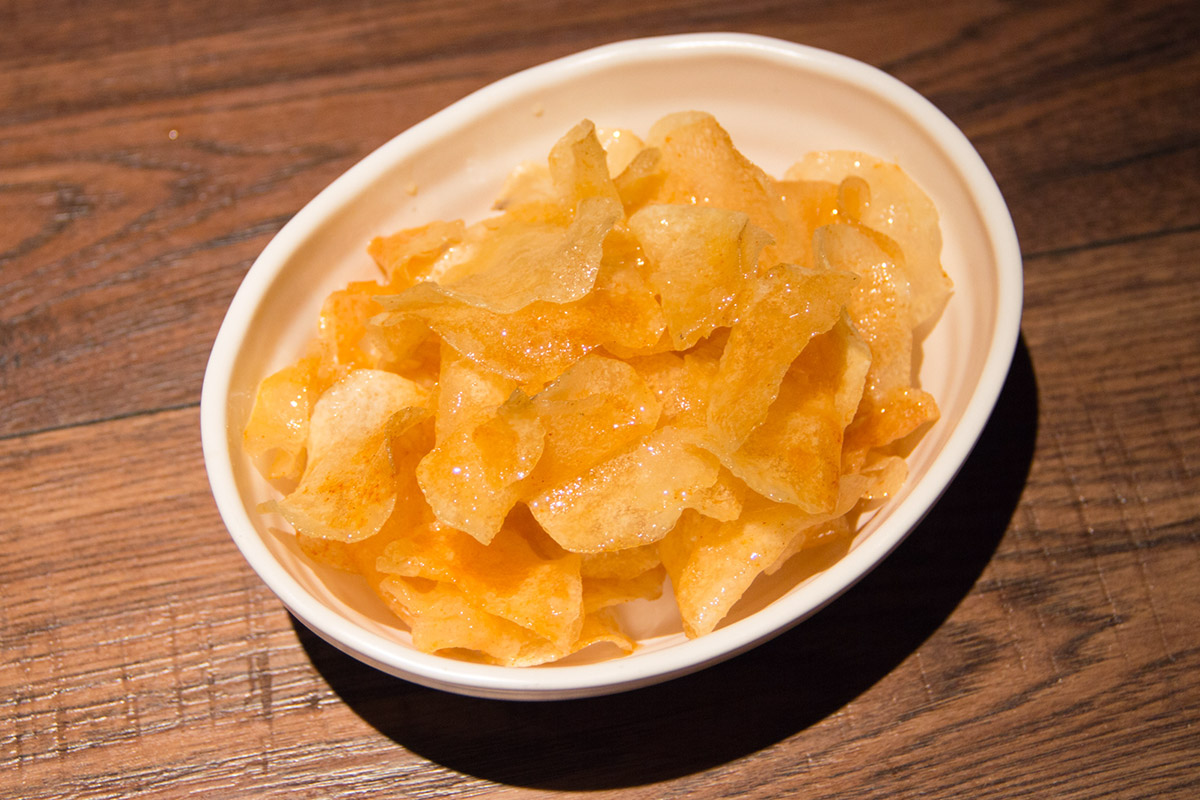Modern Korean Cuisine at Oiji
The new East Village restaurant offers elegant, unusual takes on traditional dishes

While there are many small restaurants crammed into Manhattan’s block-long Koreatown on 32nd Street, their menus are pretty similar. Each offers the traditional home-cooked staples that Koreans overseas crave, from doenjang jjigae (soybean paste stew) to samgyetang (ginseng chicken soup), with little variation—as their purpose is to restore the memory of mom’s meals. But for diners who are eager to try a new angle on Korean cuisine, new NYC restaurant Oiji rewards in creativity, authenticity and sophistication—with accessible prices and a cozy atmosphere.

Co-owners and co-chefs Brian Kim and Tae Kyung Ku both grew up in Seoul, South Korea but the two officially met when rooming together at the Culinary Institute of America in Hyde Park, New York. Working at some of New York’s most acclaimed restaurants (Kim at Bouley, Ku at Gramercy Tavern), the two were fueled by their personal desire to offer a similar fine dining experience centered on Korean cuisine. Oiji (the Korean word for pickled cucumbers, a regular side dish), takes the space over from another Korean restaurant, Dok Suni, which closed last year after two decades of operation. Max Soh, a fellow Culinary Institute of America grad and cook at Bouley, joins the team as Oiji’s GM and beverage director.

“We needed to fully understand New Yorkers’ sophisticated palates while keeping the food authentic and traditional—this was most challenging,” Soh tells CH. “When we create dishes, we become the most critical consumer. Brian and Tae Kyung have spent the last few years dining in many restaurants in New York—studying menus and seeing what New Yorkers respond to. It was this research that helped them to understand what they needed to do for the Oiji menu.” He continues, “We just want to share familiar Korean flavors with New York in an approachable way.”

Korean food is undeniably hearty (there’s a reason why we “chase” hard liquor with sizzling hot dishes and not beverage mixers, and cure hangovers with stews) but it can sometimes be too heavy or greasy on stomachs. The chefs have done a skillful job of balancing both traditional and non-traditional ingredients (their French cooking experience plays heavily here) for dishes that leave a strong impression on the tastebuds, but stay light overall.
Start off with the beverage side of the menu, where much attention has been paid. The eight seasonal cocktails, from the Seoul Paloma (tequila, China-China liqueur, Korean makgeolli, cold-pressed grapefruit syrup) to the Nutcracker (mugwort-infused Hwa Yo 41 soju, amaretto, Korean bekseju, walnut bitters), are worth a trip to Oiji alone, promising something different than the typical fare. “Each has been carefully thought out to employ one Korean element while remaining true to the spirit of American modern craft cocktails,” notes Soh. Diners can also go more traditional and select from classic Korean fermented beverages like premium soju, bokbunja (a dessert wine made from raspberries native to Korea) or makgeolli (unfiltered rice wine).

In true Korean style, dishes are meant to be shared. The beef tartare appetizer with pickled mustard seeds, Asian pear, pickled cantaloupe, ramp aioli and egg yolk upgrades the popular dish yukhoe (which could win an award for least photogenic dish served at Korean restaurants) into an edible work of art. Fried chicken becomes a light and crisp affair, thanks to a tapioca flour batter, with a kick from jalapeños and spicy soy vinaigrette.

The highlights of the meal are the comfort food dishes that channel home. The chefs give jang-jo-rim (beef marinated in soy sauce, often packed into school lunches) a risotto quality by pairing it with buttered rice, a flavorful departure from the usual go-to of sesame oil. The slow-cooked oxtail with root vegetables nurtures the stomach, while feeling all the while healthy. Most impressive is that, unlike many of the Korean restaurants in the city, all of Oiji’s kimchi is made in-house. Chef Ku personally makes it himself, and there’s a special kimchi preserving unit to keep it at ideal consistency.

There’s no dessert here, but you can order a side of honey-butter chips for $5. It’s an inside joke for anyone who’s been to Korea in the past year—it’s a play on the mass-produced snack that debuted in the country last August, becoming so popular that it started a Cronut-like craze (and earned its own Wikipedia entry). Oiji’s homemade (and labor-intensive) version is both sweet and savory, and a pinch of cayenne pepper leaves a spicy taste on the lips. The ultimate test for Chefs Kim and Ku, of course, will be having their parents dine at Oiji one day—which they’ve yet to do—and see what their mothers say.
Oiji is located at 119 1st Avenue, New York, NY 10003 and takes phone reservations.
Images by Nara Shin












